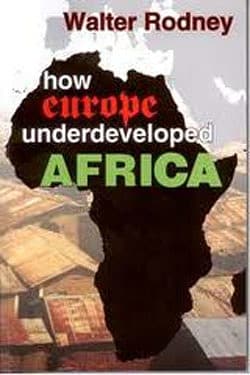
How Europe Underdeveloped Africa, by contrast, was more urgent and immediate, having been produced in the heat of battle, which is to say amid the ongoing struggle of Africans against capitalist and neocolonialist underdevelopment. How Europe Underdeveloped Africa, however, differed from the above-mentioned works, which were written long after the events they charted occurred. Dubois’s magisterial work on the struggle for democracy in the United States during the post-Civil War, post-slavery era. How Europe Underdeveloped Africa instantly joined a select pan-Africanist canon that would be read at least as much outside as within the academy, an exclusive category that included the two texts that had greatly influenced Rodney’s intellectual development, notably James’s Black Jacobins and Williams’s Capitalism & Slavery, along with Black Reconstruction, W. It fused, as had never been done in a single volume before, African history in the global sense and underdevelopment theory, Marxism and black nationalism, intellectual passion and political commitment. “Appearing in 1972, How Europe Underdeveloped Africa was a genuine tour de force. “Rodney’s analysis remains as relevant as it was when first published-a call to arms in the class struggle for racial equality.”

This meticulously researched analysis of the abiding repercussions of European colonialism on the continent of Africa has not only informed decades of scholarship and activism, it remains an indispensable study for grasping global inequality today. In his magnum opus, How Europe Underdeveloped Africa, Rodney incisively argues that grasping "the great divergence" between the west and the rest can only be explained as the exploitation of the latter by the former. In 1980, shortly after founding of the Working People's Alliance in Guyana, the 38-year-old Rodney would be assassinated. His deportation catalyzed 20th century Jamaica's most significant rebellion, the 1968 Rodney riots, and his scholarship trained a generation how to think politics at an international scale.

In each locale, Rodney found himself a lightning rod for working class Black Power. In his short life, the Guyanese intellectual Walter Rodney emerged as one of the leading thinkers and activists of the anticolonial revolution, leading movements in North America, South America, the African continent, and the Caribbean. The classic work of political, economic, and historical analysis, powerfully introduced by Angela Davis


 0 kommentar(er)
0 kommentar(er)
